How to beat the New System Blues
(If you’d prefer to watch this on video rather than read, just click here)
You put it in a new system, you’ve got it through the initial getting it up and running. It’s still not quite causing the joy that you thought it would cause, particularly for the people who are using it. What you and your people have got is a case of the New System Blues.
Here’s what to do about this.
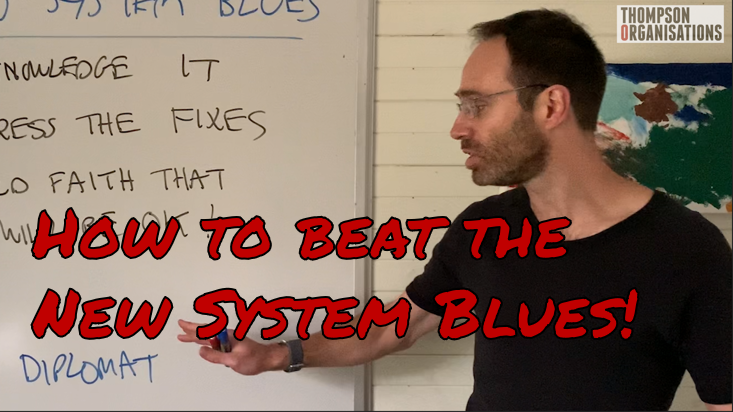
ACKNOWLEDGE IT
The first thing we do is… acknowledge it. This means say out loud that the new system, in many circumstances does not work as well for the people who are using it as the old system did. Why? Because it’s true! If people are experiencing something, then that is their experience! You can’t win that battle.
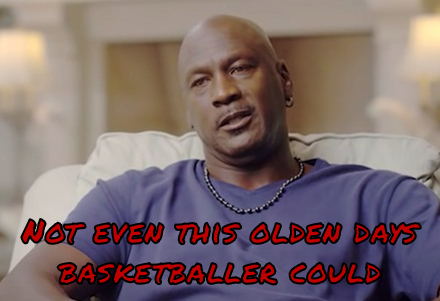
If you present any instance that says, “Here’s why the new system is better,” they’re going to come at you with why it’s not, and they’re not going to be incorrect (you’re not going to be incorrect either by the way). It’s like arguing politics on Facebook – everyone wheels out their preferred facts to suit the conclusion they experience as true.
So instead of trying to win that battle, which you can’t, acknowledge it. Agree. “Yes, the old system was definitely easier and better at that thing for you than the new one”. And then we say, “But I’m going to make the choice to build from what we can.” And this takes us to our next thing we do, which is we address the fixes.
ADDRESS THE FIXES
This means you start capturing issues with the new system as compared to how the old system used to work, make them into a list (call it a ‘backlog’ of course 😊 ) and organise a way to fix these things one by one. Put the backlog in some sort of order, like highest impact / easiest to fix first, and work your way through.
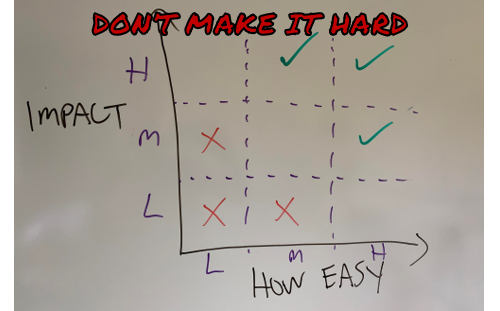
The reason you are doing this, however, is not to suddenly make everything okay. What you are doing is showing that we can get on and do things. And it’s designed to build a little bit of momentum, and break the feeling of being completely stuck. That’s all.
Addressing the fixes is not going to solve the core problem. Because….the core problem is faith!
BUILD FAITH
Your people need to have faith that they will be okay using the new system. You already have that faith.

You wouldn’t have this problem if you didn’t. What you’re doing here is leadership because you can see a better future, and you’re putting in the work get people to move towards it.
So why do you see it differently?
There’s a body of work and various models that look at adult ego development. The idea is that we don’t stop moving through stages of mental and emotional growth when our physical growth does, and the stages of this growth can be seen and felt. One of the key uses of such models is to help with understanding and moving through ‘stuckness’, and the New System Blues are a classic example.
The Diplomat has become trapped
The model I find the most useful is called the Leadership Maturity Framework where I work in association with developer Dr Maja Stajonevic-Andre to help people along their pathways using this impactful work.
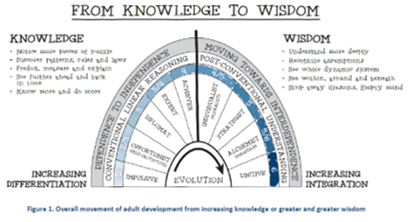
One of the stages of ego development is called the Diplomat stage, and it’s the one often triggered by a change of system. The Diplomat stage is characterised by action logic based on there being a truth from authority, safety in things being the way they are, and knowing that if rules are followed, customers are kept happy and what’s asked for is done, I’m going to be okay. This action logic is brilliant for taking care of business, being reliable, being trustworthy, getting many necessary details sorted out.

When, however, you change the system that allow the Diplomat to deliver for their customers and those in charge, what you’ve done is you’ve taken away the very way that the Diplomat action logic feels valuable. We’ve caused big problems for the Diplomat. They have become trapped into a situation which tells them “this new system will not allow me to be valuable”. And that’s what we must address.
(To go to what our kids are taught in school these days, what we’re doing here is reengaging the growth mindset of Carol Dweck)
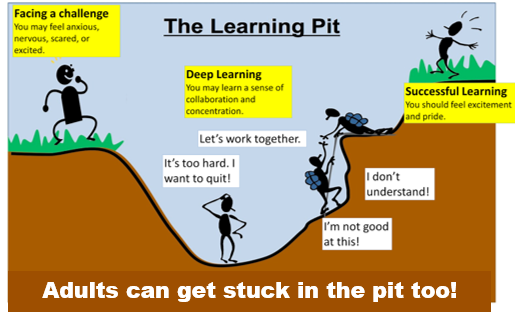
Freedom from the trap
So what to do? A clue lies in the Leadership Maturity Framework. The stage that comes after the Diplomat is called the Expert stage, where the person is seeing that they can form their own knowledge that has value without it having to come from an authority. It says, “I don’t have to follow the rules to be a good soldier, I have some expertise and knowledge that is my own, and this is how I can be valuable in the show.”
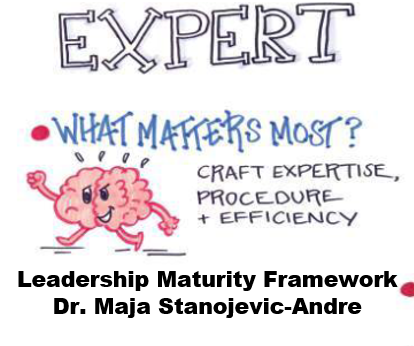
This is our path to how we help people to get over the New System Blues – help them find the confidence that their own knowledge and expertise can be valuable in this new system.
To do this, find what I call a ‘needed niche’. If it’s an internal system such as a finance system, what we’re looking to do is find something that the new system can do that is going to be valuable to the internal customer. Then, find a way that the those who are struggling the most in terms of using the new system can gain some knowledge and expertise in that area. This means organising some training or other method to show them how they can create something that will be genuinely needed by their internal customers.
Do this well, and some expertise will be built. The belief of “the only way I can be valuable is in the old system, in the old world” starts to fade, and is replaced by “you know what? I can learn new stuff. This system might be valuable”, which then creates momentum to go on to the next thing, and the next.
Stay the course, and gradually, over time, we’ll create a situation where the New System Blues will fade away.
REMEMBER…
Remember, building faith has to be supported by;
- Acknowledging that there were things that were better about the old system. And;
- Continually addressing the fixes so we can keep your system working better.
The above two things form the foundation. The real work is building the faith through finding a needed niche that the new system can deliver (and ideally, only the new system can), then getting that those struggling the most with the new system to get good at that particular niche.
Make them valuable. Make them so that they are the only one who could provide that information.
It creates a sense of pride.
It creates a sense of value.
It creates a sense of “this is how I now fit back into the show”.
Which means “I’m going to be OK”. Which is all we really want isn’t it!
(If you’ve got a touch of the New System Blues, or if you are interested in learning more about the Leadership Maturity Framework, get in touch with me by clicking here, and I can send you some information on how to get started inside your own organisation. )
